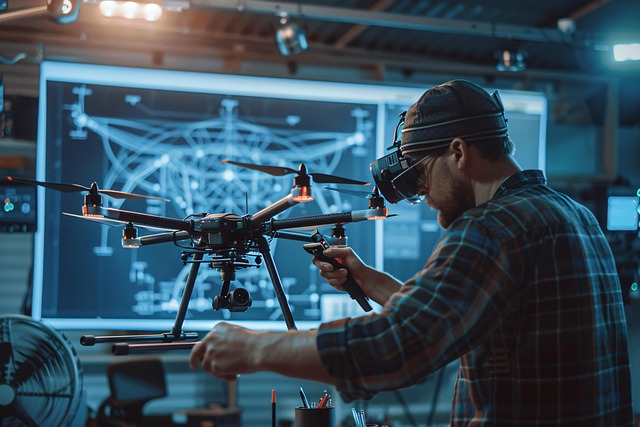Travel has always been a deeply human experience—rooted in curiosity, discovery, and a desire to connect with new cultures. But as the world changes, so too does the way we travel. In recent years, technology has revolutionized nearly every aspect of the travel experience, from planning a trip to navigating foreign cities and even how we immerse ourselves in new destinations. The future of travel is being shaped by innovation, and its impact is profound, promising more personalized, seamless, and sustainable adventures.
Smart Planning: AI and Personalization
The journey now often begins with a smartphone or laptop. Travelers no longer rely solely on travel agents or guidebooks. Instead, artificial intelligence (AI) is playing a pivotal role in the way trips are planned. AI-driven platforms can analyze preferences, travel history, budget, and even social media behavior to recommend tailor-made itineraries. Tools like ChatGPT or AI-enabled travel assistants can answer complex travel questions, suggest destinations, and build customized travel schedules in seconds.
Moreover, booking platforms are becoming more intelligent. They use machine learning to forecast prices, recommend the best times to travel, and suggest accommodations that align with a traveler’s unique tastes. With personalization becoming the norm, travelers enjoy curated experiences that feel exclusive and intentional.
The Rise of Virtual and Augmented Reality
Technology is also changing how we choose destinations. Virtual reality (VR) tours allow users to “walk through” hotels, landmarks, and cities before they book. This immersive pre-travel experience helps reduce uncertainty and builds excitement. Want to explore the Louvre or wander the streets of Tokyo from your living room? VR makes that possible.
Augmented reality (AR) enhances on-site experiences. AR apps overlay digital information onto physical surroundings, offering interactive maps, historical facts, or translation tools in real time. Tourists can point their phones at a monument and instantly learn its history or see reconstructions of ancient ruins.
Smart Travel and Seamless Navigation
Airports and airlines are embracing smart technologies to streamline the travel process. Facial recognition for check-in and boarding, biometric passports, and contactless payments are becoming standard. These technologies reduce wait times and enhance security, making the journey smoother from start to finish.
Once at their destination, travelers benefit from smart navigation tools. Offline GPS apps, real-time translation software, and AI-powered city guides allow even the most remote areas to be explored with confidence. Language barriers are breaking down, and the fear of getting lost is becoming a thing of the past.
Sustainable Travel Powered by Innovation
As concerns over climate change grow, technology is offering ways to travel more responsibly. Electric and hybrid vehicles are reducing emissions in ground transportation. Airlines are investing in sustainable aviation fuel (SAF) and exploring innovations like electric planes and more efficient flight paths.
Eco-conscious travelers can now use apps that track their carbon footprint and suggest greener alternatives—such as trains over planes or carbon offset programs. Some platforms even allow users to choose accommodations based on environmental certifications and practices.
Remote Work and the Rise of “Digital Nomadism”
The COVID-19 pandemic accelerated the shift to remote work, giving rise to a new breed of traveler: the digital nomad. With nothing more than a laptop and Wi-Fi connection, people can now live and work from almost anywhere in the world. In response, destinations are adapting.
Countries like Portugal, Estonia, and Barbados have introduced digital nomad visas to attract long-term remote workers. Co-working and co-living spaces are popping up globally, blending productivity with exploration. Technology enables this lifestyle by providing access to virtual offices, collaboration tools, and community networks that connect nomads with locals and fellow travelers.
The Role of Big Data and Predictive Analytics
Behind the scenes, big data is transforming how the travel industry operates. Airlines, hotels, and tour operators are using predictive analytics to anticipate demand, optimize pricing, and improve service delivery. By analyzing user data, businesses can forecast trends, manage resources more efficiently, and offer better experiences to customers.
For travelers, this means fewer delays, more relevant offers, and a higher level of personalization. From dynamic hotel pricing to predictive weather alerts, big data is helping both companies and consumers make smarter travel decisions.
Challenges and Ethical Considerations
While the technological transformation of travel brings many benefits, it also raises important ethical questions. Data privacy, digital security, and surveillance are growing concerns. As more personal information is collected and shared across platforms, travelers must remain vigilant about how their data is used.
Furthermore, not all regions have equal access to technological infrastructure. The digital divide may limit some populations from fully participating in or benefiting from these advancements. Ensuring that innovation leads to inclusive and equitable travel experiences remains a critical challenge.
As we look to the future, one thing is clear: technology will continue to redefine the travel experience. From AI-powered recommendations to eco-friendly transport, the next generation of travelers will explore the world in smarter, safer, and more sustainable ways. Yet, even in a tech-driven future, the heart of travel will remain the same—a desire to connect, discover, and grow.
Technology may change the way we move, but the magic of the journey will always lie in the moments we create along the way.

